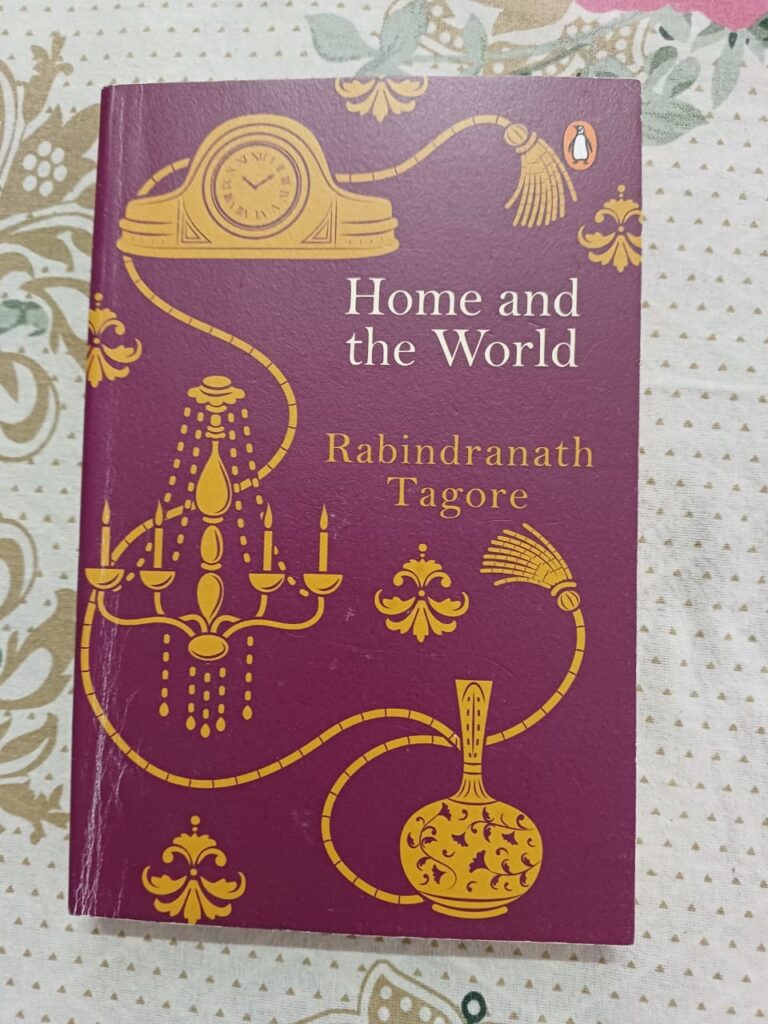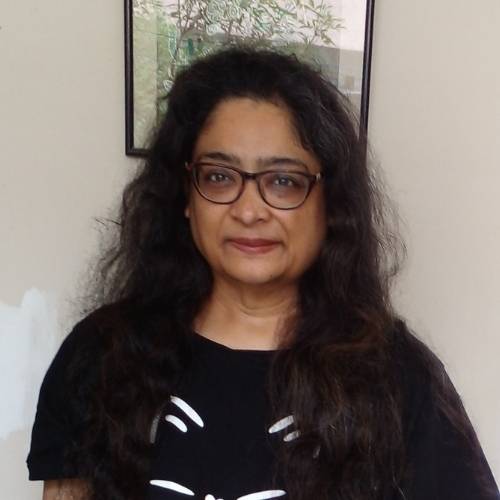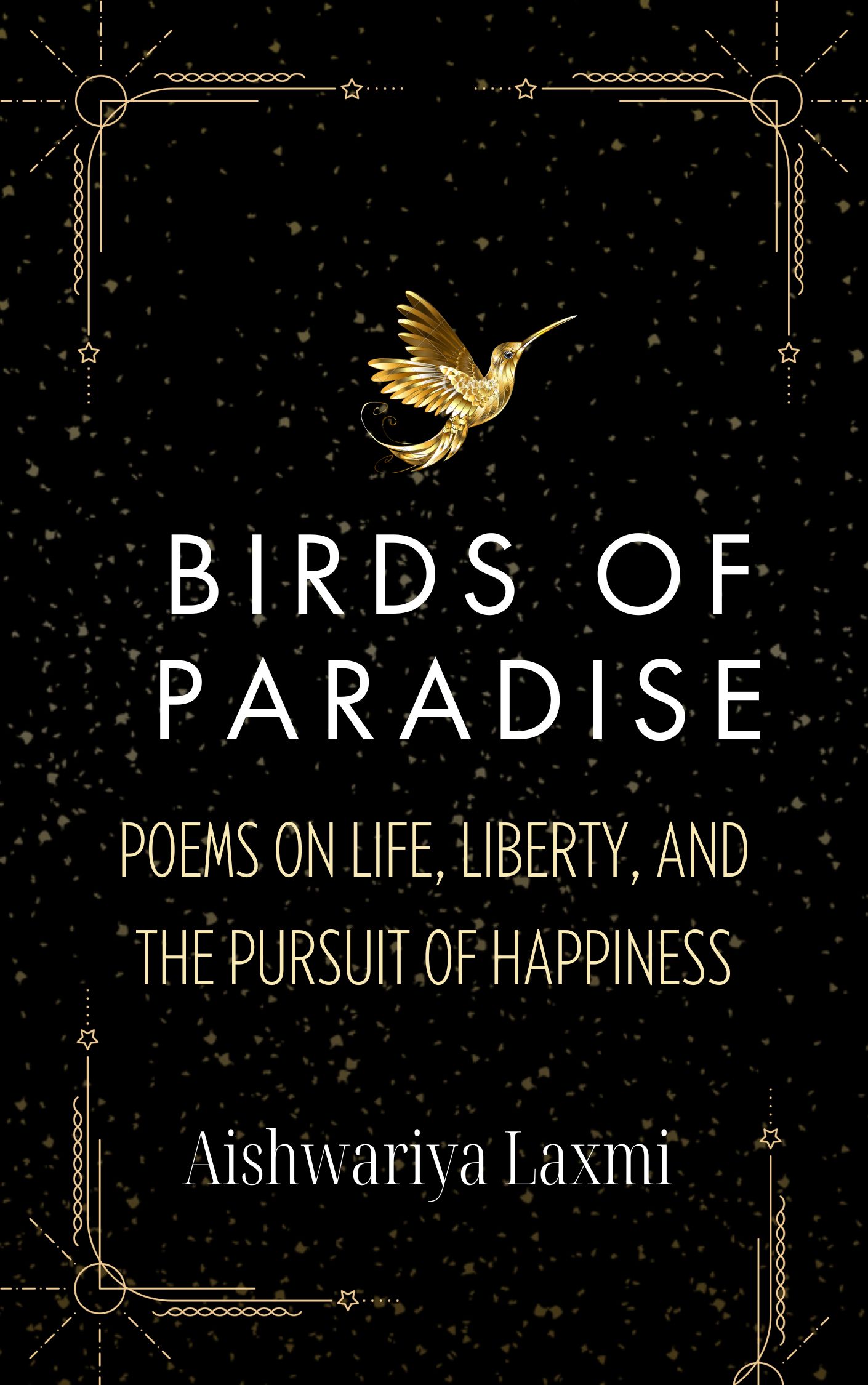Home and the World – Rabindranath Tagore- Translated from Bengali by Sreejata Guha, Penguin Books, 2005
Book Review by K.S.Loganathan
Rabindranath Tagore was the first non-European to be awarded the Nobel Prize ( for Literature in 1913). As a prolific writer and social reformer, Tagore reshaped Bengali Literature and Music. A son of Debendranath Tagore, a philosopher, socio-religious reformer, and leader of the Brahmo Samoj, Rabindranath was instrumental in the growth of Shantiniketan as the first open university that has been recently added to UNESCO’s world heritage list. In his other novel of note, Gora (1910), Tagore opposes the idea of Bharatvarsh based on Hindu orthodoxy, through its principal characters and upholds Brahmo Samaj ideals. In Gitanjali, also published in the same year, Tagore comes across as a universalist, where ethical principles take priority over the concerns of one’s group or self.
Tagore wrote ‘Home and the World,’ in 1916 in amplification of Gitanjali 35 as the “world that has not been broken up into fragments by narrow domestic walls.” He sets the story shortly after the partition of Bengal by Viceroy Lord Curzon, which separated Hindus and Muslims into different geographical areas and sowed dissension between them. Bankim Chandra Chatterjee’s Bengali novel Ananda Math published in 1882 and the song Vande Mataram in praise of Bengal as Mother Goddess inspired activists who adopted it as the hymn of the early Indian nationalist movement. Tagore, on his part, abhorred deifying the nation as Bharat Mata or, for that matter, nationalism that is conflated with religion. He did not support the Swadeshi movement as it failed to fundamentally transform the condition of the poor. We see the counterarguments presented in the book.

Book Cover
The title is about the thresholds that are crossed when married women are introduced to the outside world and come under the growing influence of the community in the shape of Westernized knowledge systems and social practices. The two World Wars fought in the 20th century led to the eventual dissolution of four empires – British, Ottoman, Austria – Hungary and Russia – into nation-states. Tagore’s view at the time was that nationalism could not be a political justification for grabbing land and material resources, but should be humanistic, based on the ancient philosophical view of the world as a single nest. He uses the first-person narrative in the novel so that the inner dialogs and emotions between the three principal characters become a “stream-of-consciousness” and a rhetorical elaboration of the perpetual themes of love and union, patriarchy and women’s emancipation, nationalism and universalism, tradition versus modernity and the meaning of personal freedom.
Nikhilesh is a zamindar in rural Bengal. He and Bimala are married happily for nine years and live in a traditional household set in an estate. Nikhilesh even appointed an English tutor to give his wife piano and English lessons. Into their idyllic world comes Sandip, a friend of Nikhilesh and a firebrand orator who spins magic with revolutionary ideas with strident speeches and acts as a piper pulling all the youth. He engages in the public celebration of Bharat Mata and the singing of Vaishnav Padabalis (lyrics) for nationalist causes. He charms the plain-looking Bimala via the classical stages of flirtation: compliments on her looks and attire, talks about women’s liberation laced with sexual innuendos, overcoming her conscience, which is a barrier, and making a heavy demand on her finances. Bimala is caught between her husband’s refusal to take part in the Swadeshi movement for burning foreign clothes and Sandip’s revolutionary ideas and the divide surfaces in the community as well. Bimala goes as far as to steal money from her husband’s household funds and hands it over to Sandip and that is where the spell is broken. A rapid descent to chaos follows, as Sandip escalates his political activities, which unleash communal violence that would be the precursor for many more to follow in the years to come.
Nikhilesh’s guru Chandrakant Babu says on the emerging forces of nationalism, “We have moved aside ethics and placed the country on that pedestal; now all that is bad in the land would shamelessly rear its ugly head and reveal itself.” None of the principal characters appear to be at home in the world and are chastened by the turn of events. Tagore is warning us against the possibility that nationalism can do more harm than good.
My Views
As Nikhilesh and Bimala move from their home to the world, some of their dearest illusions crumble. There is value in reading about their struggles and regrets and their individual actions, spiraling into a larger world of chaos. In the hands of a capable author, the political and social realities swirl around them as they fail to compromise when there is a conflict of viewpoints. The value of the novel is that it is a mirror of its age, which still gleams amid the scatter of dust. In my view, the novel is not one of Tagore’s best works nor the most engaging, but these are the topics of the moment and perhaps of the times to come.
This post is a part of the Bookish League blog hop hosted by Bohemian Bibliophile












30 Responses
I haven’t read the book, but I’ve seen the movie. Bimala’s naivety struck me the most, out of the issues that Tagore was trying to highlight.
Thanks for your observation and comment, Manali.
Such a detailed, well researched review.
I am very fond of Bengali literature. I haven’t read this book but I have read some novels/stories written by Rabindranath Tagore.
I have read Tagore quite a bit – Geetanjali, Fruit gathering, a few plays… Then a sense of repetitiveness began to put me off.
I see, Sir.
Thank you on behalf of my dad, Tarang. Which novels and stories of Tagore have you read?
I really liked the point of putting the country on the pedestal and what that can lead to. It’s quite mirroring of where we are right now.
Thanks for your comment, Suchita!
I remember reading the Hindi adaptation of Ghare Bahire, decades back and after reading your review I recalled some of it. The cushioned life of the zamindars, the passionate and Impressionable Bimala, and the street-smart magnetic Sandip. At that time I had many questions, How Tagore could really fathom what went on in a woman’s heart and mind? What is right and what is wrong?
Hi Preeti, Thanks for your interesting observation.
I have read too little of Tagore. I did read Gora when I was younger and I think I wasn’t adult enough to fully grasp the philosophical discussions in the book. I do love that Tagore takes up the topics of his time and throws up alternate viewpoints. It makes one think deeply.
@Tulika – It does, doesn’t it?
I haven’t read Tagore’s work, except maybe in school. I think I need to remedy this. The themes of this book seem to hold up a mirror to the times we are living in, which is quite interesting.
@moderngypsy – Some works find new audiences after a long period of time…
Aishwarya, I am ashamed to say that I have read very little of Tagore apart from what was mandatory in school. I think it is high time I go back to the roots
@Harshita – Good luck with your reading!
Rabindranath Tagore is that literary laureate reading whom I grew up. Be its reading the collection of rabindra rachanbali in my father’s library or the text chapters in my school books Rabindranath is an important part in every Bengale house and offcourse globally. I read this book but in Bengale offcourse and I am glad that you picked this book
@Samata – I’m glad you are so well-acquainted with Tagore’s writing.
First, I must say that I have never a story by Tagore, something I need to rectify immediately. And the very fact that this book is so relevant for the times we live in, I am going to begin with this. I see the world as he sees in this book.
@Ambica – Happy reading!
I love how in-depth your review is. I’ve never heard of this book, but I’m really really glad to have heard about it through you. Lovely review!
@Ahana – Thanks for the compliment. I will pass it on to my dad.
I read Home and the World back in college and remember loving it to the core. Tagore’s stories are always so fascinating! Am so glad you wrote this post!
@ Ninu – Thanks Ninu. I will convey your compliments to my dad, who wrote this guest post
Reading Tagore always made me nostalgic and provoked my thoughts about understanding the world. I loved your in-depth review.
Thanks, Kanchan. I will convey your compliments to my dad who wrote this guest post:)
I have read a few books by Tagore but have yet to pick Home and the World. It is always a treat to read a post by your father, Aishwariya. Loved reading his take on the book.
@Ritu- Thanks so much:) Will convey it to him. I love his reviews, too!
I read this book long back and reading this review here makes me want to pick it upon again.
Hi Kiranmayi. I’m glad the review compels you to re-read it. Happy reading!